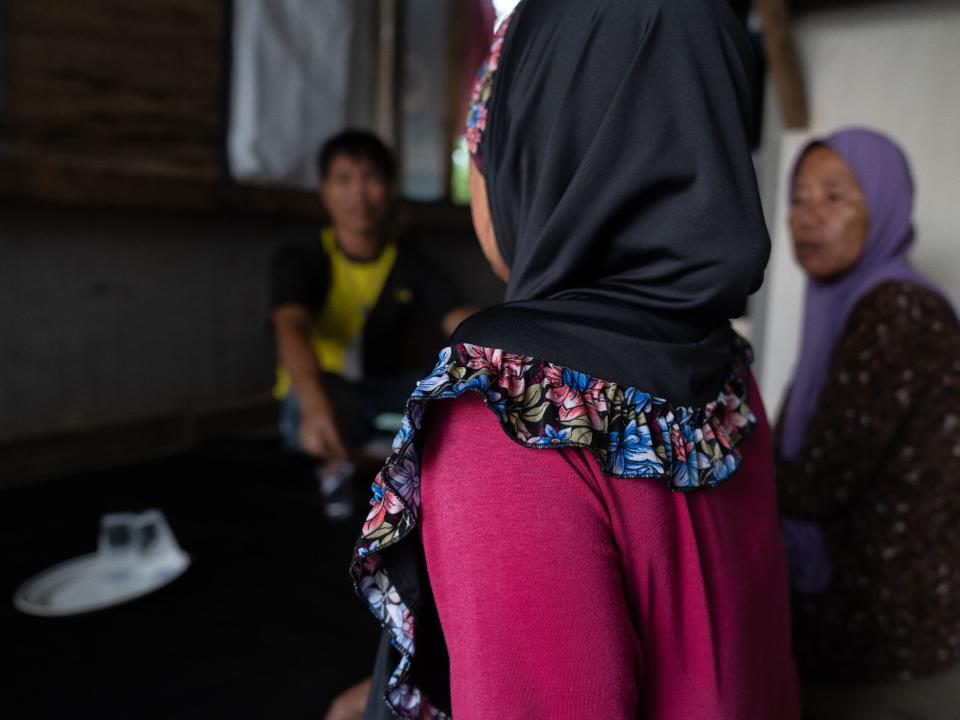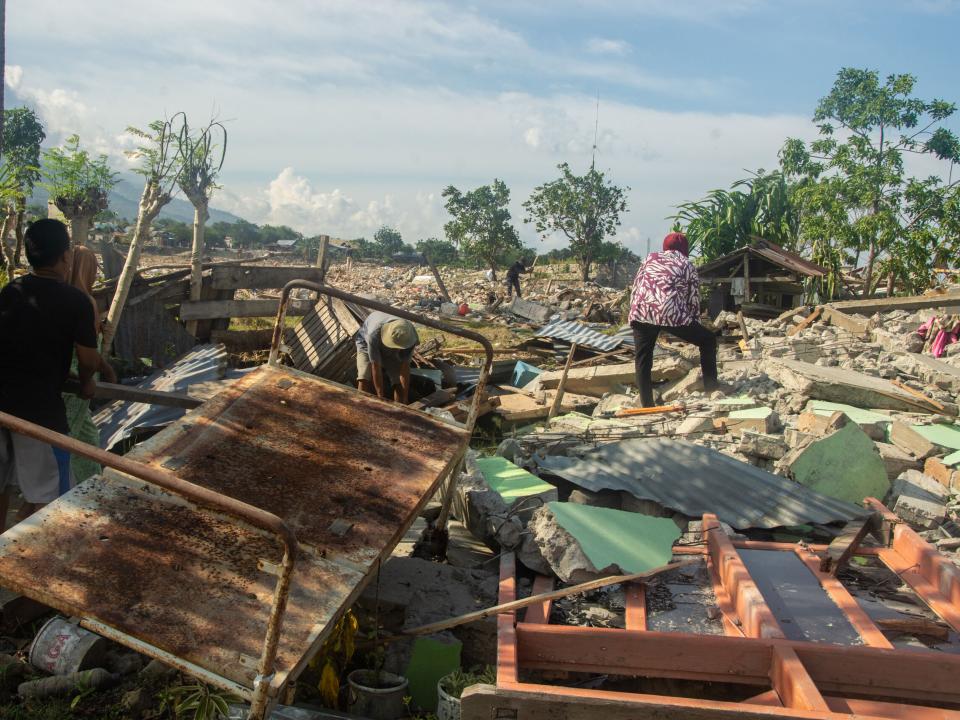
Indonézia
With a population of 248 million people spread over 6,000 islands (17,508 islands in total), Indonesia has 684 airports and is divided into three time zones!
Indonesia
With a population of 248 million people spread over 6,000 islands (17,508 islands in total), Indonesia has 684 airports and is divided into three time zones!
As the 4th most populous country in the world, Indonesia consists of many distinct ethnic, linguistic and religious groups. The Javanese are the largest and most dominant ethnic group (42%). There are around 300 distinct native ethnicities in Indonesia, and 742 different languages and dialects. Indonesian (Bahasa Indonesia), a form of Malay, is taught in schools and has thus become the language of business, politics, national media, education and academia. 86.1% of the population considers themselves Muslim and 5.85% Christian (5.6% Evangelical).
Jakarta is the capital of Indonesia and is the country's economic, cultural and political centre.
Ministry opportunities in Indonesia
Over 20 years of ministry in Indonesia, OM Indonesia has seen God at work to win the Indonesians for the Lord and to send Indonesian believers out to work for Christ in various countries across the globe.
Today, there are four main ministry streams that we focus on locally and globally.
- Field Ministries on Evangelism, Church Planting, Relief & Development, Mentoring, Justice: Within the local context, the above five key ministries are primary work that we initiate. The work is done mainly in partnership with local churches, local and international organizations, short and long-term OM Indonesia teams, and other OM entities.
Currently, we have a sports ministry that disciples and raises up Christian coaches to impact the lives of athletes with the Gospel. Short-Term opportunities are also open with pre-arranged outreaches.
- Raising Godly Global Leaders: It is our desire to raise godly global leaders from the local church to impact the world with their missional lifestyle. Our goal is to see believers grow in their Christian leadership, to demonstrate godly leadership and be involved in leading global missions.
- Mobilize and Equip the Church for Global Mission: Indonesia has around 2.4 million in her Christian population and we are praying that God will help us to mobilize 0.01% (2,400 believers) of the local Indonesian church over the next 10 years and to equip them for the unfinished task that God has entrusted us locally and globally.
- Resource Ministries Locally and Globally: As the Church of Indonesia has her capacity in finance and in people to support the ministry; we would like to see resources released to transform the lives and communities locally and globally.
How you can get involved:
- PRAY
- Pray for the revival of the Indonesian Church so that they are actively involved in bringing the Good News to the least reached locally and globally.
- Pray for more workers to be raised up for the OM Indonesian team in order to carry the tasks to a finish in the areas of four main ministry streams mentioned above.
- Pray against strongholds in Indonesia. Indonesia is known as the world's largest Muslim population. There are many restrictions and strongholds in the country holding the Gospel back from being preached.
- GIVE — Give here (http://www.om.org/en/give) or contact the OM office in your home country to help support the work of OM in Indonesia.
- GO — See the job opportunities listed at http://www.om.org/en/opportunities. Contact us at: info.id@om.org or visit our website: www.om.org. Please join us in our ministry to help fulfill the Great Commission.
More information about Indonesia (text box)
· Population: Population: 232,516,771 Annual Growth: 1.19%
- Capital: Jakarta Urbanites: 53.7%
- Official language: Indonesian (Bahasa Indonesia). Its increasing use is unifying the nation and lessening the importance of smaller languages to the younger generation Languages: 722
(Resource: http://www.operationworld.org/country/indo/owtext.html)
- Economy: Indonesia has a mixed economy in which both the private sector and government play significant roles. The country is the largest economy in Southeast Asia and a member of the G-20 major economies. Indonesia's estimated gross domestic product (nominal), as of 2014, was US$887 billion while GDP in PPP terms is US$2.685 trillion. It is the sixteenth largest economy in the world by nominal GDP and is the eighth largest in terms of GDP (PPP).
(Resource https://en.wikipedia.org/wiki/Indonesia#Economy) - Religious make-up: While religious freedom is stipulated in the Indonesian constitution, the government officially recognises only six religions: Islam, Protestantism, Roman Catholicism, Hinduism, Buddhism, and Confucianism.
Indonesia is the world's most populous Muslim-majority country, at 87.2% in 2010,
the majority being Sunni Muslims (99%). The Shias and Ahmadis respectively constitute
0.5% and 0.2% of the Muslim population. In 2010, Christians made up almost 10% of the population (7% were Protestant, 2.9% Roman Catholic), 1.7% were Hindu,
and 0.9% were Buddhist or other. Most Indonesian Hindus are Balinese, and most
Buddhists in modern-day Indonesia are ethnic Chinese.
(Resource https://en.wikipedia.org/wiki/Indonesia#Economy)
- State of the church: The history and background of Indonesian Christianity are unique. Indonesians are able to make a significant contribution to world evangelization. Churches to be gripped by the challenge of hundreds of unreached peoples in their own country and in other lands of Asia and Africa. The financial and human resources are there. Denominations will need to work together on an unprecedented level. Individuals, teams and communities – as migrants to un-evangelized areas with a vision for church planting. Christians need to be set free from tribalism, denominationalism, and local loyalties and learn to be sensitive to the subtleties of ministering cross-culturally. Indonesian missionary agencies are increasing in number. Most are involved in evangelistic and church-planting ministries within Indonesia, and a few have workers outside the country. Also, some Indonesians serve with international missions (YWAM, WEC, OM, Navigators, and others). Training and strategy issues are vital for such a vision to be accomplished. Changing the mindset of ordinary Christians – and theological students in particular – to become more missional is crucial. Vocational training that will allow believers to meaningfully contribute to unreached communities in sensitive and hostile areas is also needed.
(Resource: http://www.operationworld.org/country/indo/owtext.html)

